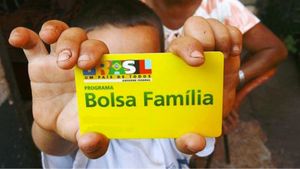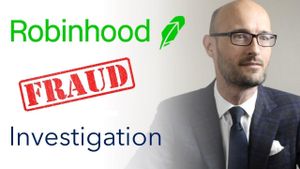Pope Francis' health remains under close scrutiny as he continues to be hospitalized at the Gemelli Hospital in Rome. Reports from the Vatican indicate his condition is "critical," echoing growing concerns over his ability to fulfill his papal duties. Following his hospitalization for respiratory problems, including pneumonia and asthma, many wonder what will happen if he cannot continue to serve as pope.
According to the latest statement from the Vatican, as of Sunday, the Pope has shown signs of initial renal insufficiency, described as mild but manageable. The statement reassured followers, indicating he remains conscious and oriented. The growing health concerns, including severe bronchitis complications and asthma, have triggered widespread speculation about his potential resignation or the prospect of death—events which would dramatically impact the Catholic Church.
While the Pope manages his treatment, the world watches closely, waiting for updates and praying for his recovery. Some clerics and believers gather outside the hospital, lighting candles and offering prayers for his health, reflecting the deep connection many have with the papacy and what it symbolizes.
Experts highlight the nuances surrounding papal succession. If Pope Francis were to resign or pass away, the Vatican has protocols ready to initiate the selection process for his successor. This includes the immediate role of the cardinals and the establishment of the conclave, where eligible cardinals will gather to choose the next pope. This process can be lengthy, often relying on consensus to reach final decisions, turning the Sistine Chapel's smoke signal—a sign of papal election—into moments of immense anticipation.
Mhoni Vidente, a well-known astrologer, has recently made headlines by predicting the timeline for the next papal conclave. She claims, "A new Pope will be chosen around the end of Holy Week or May." Notably, she expresses her hope for the next pontiff to emerge from Mexico or Italy, reflecting the global interest and diverse connections within the Catholic community.
This follows historical precedent. Pope Francis, born Jorge Mario Bergoglio, took the papacy after the historic resignation of former Pope Benedict XVI, who cited physical and mental exhaustion as his reasons for stepping down. His election required five rounds of voting, after which the white smoke signaled his ascension to the papacy.
The conversation surrounding the Papacy's future emphasizes the burden placed on its leaders—especially those like Pope Francis, who, at 88, face the compounded challenges of age and health-related issues. He has previously hinted at his willingness to step down if it served the church's best interests, mirroring the actions of his predecessor.
One specialist, Dr. Cristina Pascual, has provided insights on the health intricacies currently affecting Pope Francis, particularly touching on his recent diagnosis of thrombocytopenia. While this condition can indicate other serious health complications, she emphasizes it isn’t inherently an illness, but rather symptomatic of numerous underlying issues, creating additional concern around the Pope’s overall capabilities.
Current updates detail the Pope's health condition with key indicators setting the course for how the church might proceed. The Vatican has noted he continues to struggle mainly due to both renal and respiratory challenges, which remain under close monitoring. Despite these obstacles, recent statements indicate hope, with the Pope himself expressing his commitment to his treatment, underscoring his will to remain engaged with his responsibilities.
While the health of Pope Francis weighs heavily on many, the broader question of succession looms large. The Vatican's protocol explicitly lays out procedures for both resignation and death scenarios. If Pope Francis were to resign, the conclave would be convened without the typical nine-day mourning period following death.
This tension between health crisis and potential leadership change has stirred diverse opinions within the Catholic community, and beyond. Should the process begin of selecting his successor, it would reaffirm not only the enduring structure of the papacy but reflect the global concern for leadership continuity during uncertain times.
The urgent discussions surrounding the health of Pope Francis, interlaced with speculation about his potential successor, remind the faithful—and the world—of the fragility of life. Every decision made within the Vatican holds consequences not only for the church but for adherents across the globe who look to the Pontiff for guidance and solace.
Throughout this tumultuous period, with medical updates closely followed and predictions made, all eyes remain firmly trained on Pope Francis. Many continue praying for improved health and clarity about the future of the papacy. The role of the Pope is one steeped not just in tradition and authority but deeply intertwined with the hopes and faith of billions.



